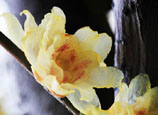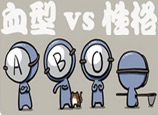
A free-flowing player with flashing groundstrokes and speed of foot, Wu tested the veteran while being cheered by Chinese supporters who made their way to his outside court.
Wu said China's top women player and French Open winner Li contacted him on the eve of the clash.
"She did not help me technically, but mentally," Wu said.
"The night before when I was going to bed, I got a text message from her. "She told me, 'don't be nervous and don't think about tennis. Just go to bed. Your answer in the match will come tomorrow, not tonight. You will get your answer on the court.'
"I was happy with the way I played, but not happy that I lost," he added.
China's top player produced a superb second set, hitting a succession of clean winners, but 53 unforced errors hindered his cause against the world No. 73.
Wu signed autographs for fans after his defeat before setting his sights on qualifying for the French Open.
"I enjoyed the support I had, first time in a main draw," he said. "Every shot and every point, I had support. Now I want to play two grand slams in a row, of course.
"The red clay at the French Open is not my strongest surface but I will practice more on it. Thankfully, coming up in Davis Cup we will play on clay and that will give me the chance to become used to it."
Meanwhile, ageless Japanese veteran Kimiko Date-Krumm became the oldest woman to win a main draw match at the Australian Open, upsetting 12th seed Nadia Pedrova.
The Japanese No. 1, aged 42, crushed her opponent, who is 12 years younger, 6-2, 6-0 in just over one hour in hot conditions. In doing so, she surpassed Britain's Virginia Wade as the oldest main draw winner. Wimbledon winner Wade won in 1985 when 40 years, 138 days.
Date-Krumm, a former top 10 player, still has some way to go to become the oldest winner at a grand slam. The record is held by Martina Navratilova, who was 47 when she won a match at Wimbledon in 2004.

















 Why supervision on 'drug chicken' lacks intensity?
Why supervision on 'drug chicken' lacks intensity?


![]()
